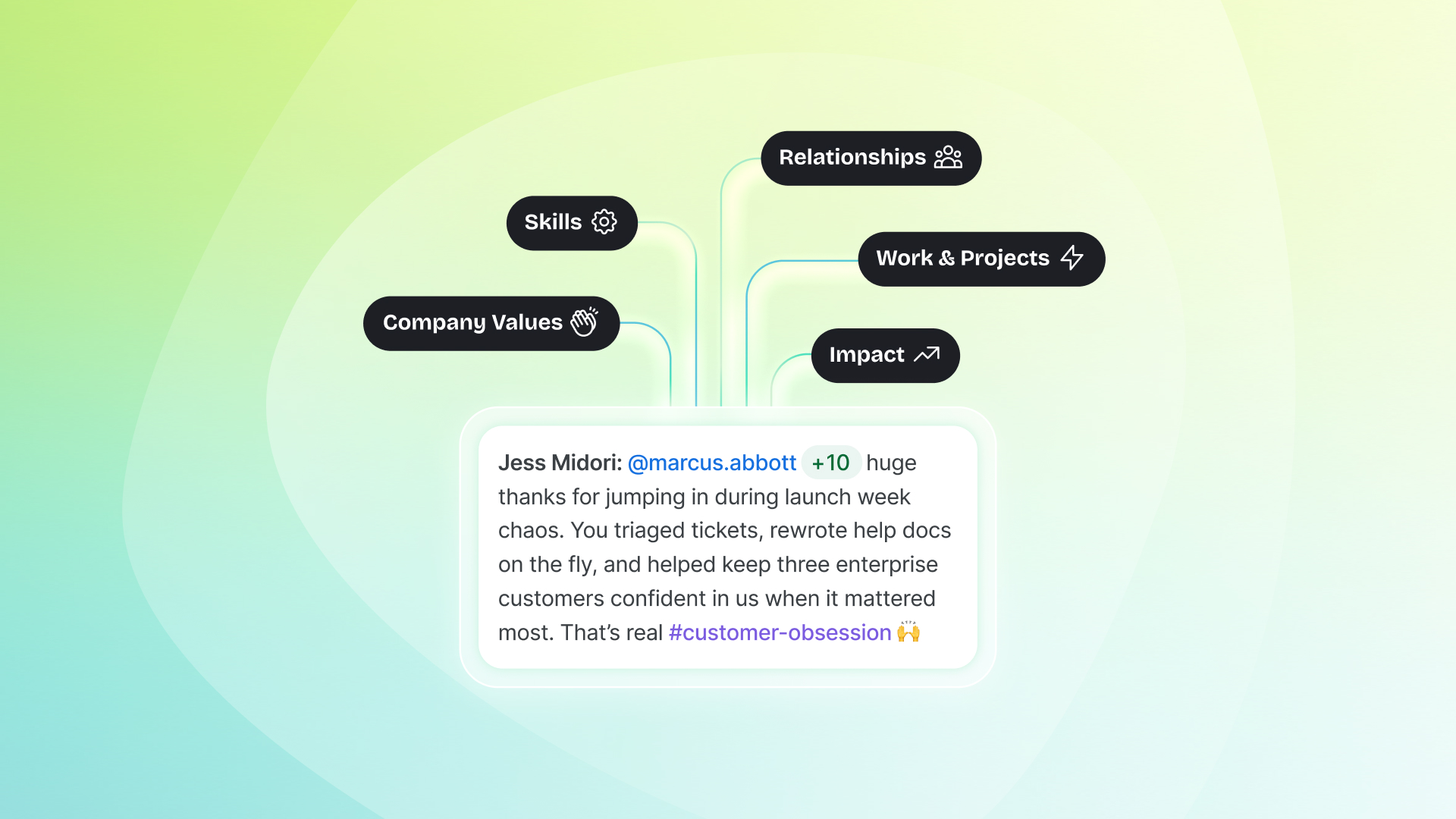The Most Important 2021 Employee Engagement Trends

Company success can’t happen without employee engagement.
We’ve all learned the value of engaged employees, especially as workplaces have adapted to the effects of a global pandemic, racial injustice, economic uncertainty, and even political anxieties. Those same workplaces have evolved to stay competitive and even thrive in challenging environments.
Now employee engagement is on the mind of nearly every organizational leader, as organizations are trying to do more with less, in a time where we’ve learned to expect the unexpected.
How did 2020 change the state of employee engagement? Watch this video.
To bring you the most important employee engagement trends in 2021, we asked top HR and People leaders about their thoughts:
1. Increased benefits
Though we often think of remote work as more ‘flexible,’ the pandemic has created and intensified work-life challenges for many employees, particularly working parents and caregivers. Employers that want to stay competitive in their talent market will face increasing pressure to provide substantive benefits—particularly comprehensive healthcare, paid time off and parental leave, and support for mental health services. HR leaders should audit their benefits package and prioritize strengthening these areas over more trivial perks and expenditures.
–Analiese Brown, PHR - VP, Talent & Culture at CampMinder
To excel at work, people need their basic needs met first, including health and safety.
Events of last year caused a seismic shift in our thinking about benefits. Surface-level office perks like free snacks or company yoga pale in comparison to substantive benefits that employees need. Since the beginning of last year, the employee experience has drastically changed, and employees need their employers to step up in order to be fully-engaged.
It’s time to rethink ‘perks’. Fancy snacks and kombucha bars sit idle with the vast majority of folks working from home (and likely not going back to an office). Wellness allowances, help with child/elder care, food delivery, ergonomics, etc. will become much more valuable to employees.
–Julie DeBuhr, Senior Director of HR at 1Password
2. Compassion in the workplace
If 2020 taught us anything, it would be the importance of not just checking on what employees are doing, but *how* they are doing. We cannot turn back from this key lesson! If employee engagement is something that a company truly values, then compassion, understanding and genuine caring for others will need to continue in the workplace. HR policies, procedures, and guidelines will need to reflect these elements or ‘engagement’ will be merely a catch-phrase or a shallow intention.
–Melanie Peacock, MBA, PhD, CPHR, SHRM-SCP, Double M Training & Consulting

Events over the past year have taught us the importance of embracing our humanity, including the need for compassion in the workplace. Throughout the collective trauma of 2020, we’ve been expected to produce more with less. On top of it all, we know we’re in for more change this year.
As we go about our work, it’s more important than ever to inspire compassion in the workplace. It’s important to acknowledge that we’re all going through challenges, some shared and some unique, that benefit from others’ empathy.
3. 360° feedback
As a leader, it is important that you create spaces for honest feedback and challenge from your teams regarding your performance. If you respond with humility and grace, you will see a courageous and innovative culture emerge.
–Branden Polk, CEO & Founder of Arrowhead Advising
You can't expect to have engagement without feedback. That means taking feedback from your team as well as giving feedback.
Successful organizations in 2021 will be the ones that regularly solicit feedback from their employees, making it easy and safe for individuals to share their thoughts. It also requires leadership to act on that feedback. By listening to feedback, many organizations have not only increased engagement but successfully pivoted business models and discovered new business opportunities.
The twisted beauty of this moment is that companies have been forced to ask, then listen to, employee needs because they have no idea how to navigate the moment. What should result from the 2020 crises is an employee-company relationship grounded in reciprocity, empathy, and mutual respect.
–Kalyn Wilson, CEO at Dream Forward Consulting

4. Relationship-building
The biggest challenge will be how to create loose ties, strengthen weak ties, and maintain strong ties across teams and the organization as most companies approach a year of working differently. Challenges like video fatigue are real, and it can’t be about asking more of people. Rather, companies will need to explore new ways of working to avoid the calcification of silos and fracturing of a common culture.
–Mark Tomaszewicz, Chief Experience Officer at Bulldog Drummond
Any successful business requires trusted relationships. However, traditional ways of growing and nurturing our network—conferences, coffee meetups, and more—aren’t options, at least at the beginning of this year. We’re still adapting to new ways of facilitating relationships and creating cohesive teams in less-than-ideal circumstances.
Keep in mind that your team may be struggling with communication as well as loneliness. Look for ways to combat isolation and understand communication preferences across your team.
5. Work-life integration
I think we can all agree that work/life ‘balance’ isn’t happening anytime soon. I want to focus on work/life integration. Asynchronous work, very flexible schedules, the cat or kid on your lap during a call—[it] needs to continue to be normalized and seen as a way to get the best work out of folks, not a deterrent to doing their best work.
–Julie DeBuhr, Senior Director of HR at 1Password
Work is evolving at a blistering pace, and one of the top employee needs this year will be around flexibility. Along with that, our working norms and expectations are changing. The idea of work-life integration used to be a tertiary priority, but it’s become a true necessity for workers, especially those in parent or caregiver roles. Fortunately, this shift towards work-life integration comes with plenty of benefits to both employers and their employees, and is a trend we expect to continue even after pandemic restrictions are lifted.
6. Recognition

One of our most successful people and culture initiatives has been to increase employee recognition and really celebrate our wins, big or small. We know from experience that recognizing employee contributions helps to build individual self-esteem and overall team morale. It sends the message that we value each employee and that their work matters—and who wouldn’t want to do their best work in that environment?
–Sophia Jaffer, CHRP, HR Lead at Collage
Employee recognition is the open acknowledgement and expressed appreciation for an employee’s contributions to their organization, and it’s one of the most important factors in employee engagement. Highly Engaged employees are 2.6 times more likely to work in organizations with a peer employee recognition program than Actively Disengaged employees.
Depending on your company culture, sharing recognition may not always be top of mind, but it’s absolutely crucial to engaging your team. Consider a recognition and reward platform as a solution to improve employee engagement and help your team live out their values.
Parting Words
Engaged employees are focused on much more than their paycheck. They’re invested in their work in a way that invigorates others, facilitates “flow,” encourages trust, and moves organizations forward. We hope these trends have inspired your team to take a closer look at employee engagement.
How is your organization planning on impacting employee engagement this year? Learn how to improve with The Essential Guide to Employee Engagement, or chat with one of our employee engagement experts to understand what solution is best for your team.







